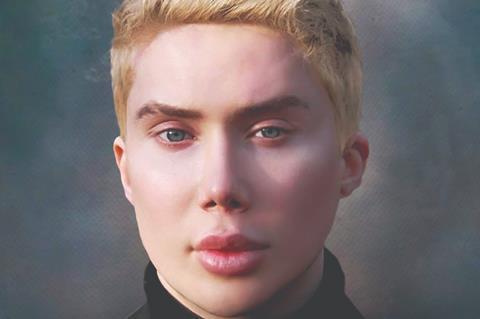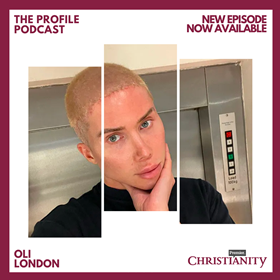Oli London first transitioned from British to South Korean and then from male to female. But now he says the multiple surgeries were a mistake and discovering Christianity has pulled him back from a lifetime of unhappiness

I grew up in the 90s and had a very happy childhood. But, in my teenage years, I was viciously bullied at school. People would say I looked like a girl, that I was ugly and that no one would ever date me.
If you’re told the same thing again and again, you start to believe it. When I went swimming, people said I had breasts. Over the years, it got drummed into me that I was born in the wrong body, that I needed to change. I began to wonder if people were right.
I had always been fascinated by Asian history and culture, so aged 23, I moved to Korea. At first it was a culture shock, but then I fell in love with the country. For the first time in my life I felt at home.
Plastic surgery is a huge part of Korean culture. Around one in five Koreans has surgery. I was seeing all these perfect, successful people – singers, actors and K-Pop stars – and I thought: I wish I could be like that. For me it started with nose surgery. But it went wrong, and my nose was left crooked, so I got correctional surgery. It became like an addiction for me; I kept getting more and more: skin-whitening injections, filler and Botox. Once I had eleven surgeries in one day. I spent around $300,000.
My Korean friends were very supportive, but I got a lot of hate in the media. I received death threats and people accused me of being racist because I wanted to look more Korean. But millions of people in Korea, China and Thailand have surgery to make their eyes bigger, which is a predominantly Caucasian feature. They get a higher nose bridge, sharper jaw lines and bigger chins, which are all seen as the Hollywood ideal. So in that context, what I was doing was not unusual. I didn’t understand people’s outrage, because I never saw it as cultural appropriation. Besides, I thought: if someone can say they’re the opposite gender, what’s wrong with me identifying with another culture?
A priest gave me a copy of the Bible and told me I was welcome in church any time
Later I had facial feminisation surgery, hair extensions and started wearing women’s clothes. For three months I felt fantastic. Everybody celebrated me; I was getting loads of praise. I thought to myself: Wow, people think this is who I’m meant to be! But it was a temporary fix. I still wasn’t happy.
Looking back, I think I was searching for my identity, and I was struggling to find it. The reason I underwent those crazy transformations, and then started identifying as non-binary, was because I didn’t know who I was.
But one day I realised: I can’t keep doing this to myself. I’m going to end up dying, or my face is going to collapse. I can’t keep putting myself at risk. I’m never going to stop this addiction unless I do something drastic.
WALKING INTO CHURCH
I decided to start going back to church. I had gone as a kid and had some positive memories, but I had become an atheist in my teenage years. Now I thought: Maybe this can help me get on the straight and narrow and give me some direction.
When I walked in, everyone was so kind and welcoming. And I wasn’t used to that, because I get so much hate on social media and horrible news articles written about me. I thought: I’ve finally found a community that’s actually nice to me. They accept me for me, and they’re trying to guide me. A priest gave me a copy of the Bible and told me that I was welcome there any time. I’ve been going very regularly ever since. I’ve been reading the Bible. It has helped me realise I should be happy with the way God made me.
One day, I was in church, and the story of Jesus healing the leper was read. I found it so interesting. Thousands of years ago, people didn’t understand what leprosy was so they wouldn’t go near these people. Jesus was the only person to go to this leper, who was rejected by society, and that action took away the stigma. It was a powerful story for me to hear, because I felt like I’d been rejected and outcast my whole life. I thought: No, Jesus has touched me and he accepts me. I’m not going to be a societal reject any more. I have purpose in life.
My identity struggles stemmed from repressed memories, and the trauma of bullying and never fitting in. But I’m dealing with those root issues now – tackling them head-on. I’m going to church and seeing a therapist, and also devoting my time to charitable causes (before I was narcissistic). I’ve been working out, trying to be more fit and healthy and trying to have more of a masculine body. I’m not wearing makeup any more and I got rid of all my feminine clothes. It’s not an overnight process, but I’m trying to rediscover the real me.
I’m still in the very early stages in my faith, but I want to get baptised this year. I want to show people that no matter what you go through, no matter how difficult life can be, if you can find faith, it can really pull you from the abyss. That’s what it did for me.
Oli London was speaking to Sam Hailes. His memoir, Detransition (Skyhorse) will be published in August.

To hear the full interview, listen to Premier Christian Radio at 8pm on Saturday 1 April or download ‘The Profile’ podcast premierchristianity.com/theprofile


































No comments yet